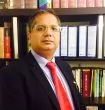The present Government is focusing on increasing the tax base particularly after de-monetisation and introduction of Benami Transactions (Prohibition) Amendment Act, 2016. The most effective tool in this aspect is surveys conducted by the Income Tax Department. Generally, the objective of conducting survey which in common parlance means 'to scrutinize/inspect' is to broaden the tax base by discovering the new assesses thereby ensuring flow of revenue back into the economy, the scope and ambit being much narrower than cases of search and seizure. We are listing below some of the common concerns which tax payers may generally have in case a 'Survey' is conducted by the Revenue Authorities.
When a Survey can be conducted?
The Income Tax Authorities can conduct a survey on any person in their jurisdiction even if no proceedings relating to the person are pending before them.
Who can conduct the survey?
1. The Survey can be conducted by the Income tax authority. Generally speaking, the Income-tax Authority is defined to include the Assessing Officer and higher officers.
2. For the limited purpose of inspecting the books of account or for placing identification marks thereon, etc. it will include the Inspector of Income-tax as income tax authority.
3. Survey can be conducted by Assistant Director, Deputy Director, Assessing Officer or Tax recovery Officer or by Inspector only after obtaining the approval of the Joint Director or the Joint Commissioner as the case may be.
4. TDS authorities are empowers to conduct a survey, however, the scope of their survey must confine to matters relevant to TDS only.
Can Survey be conducted only at Business Premises?
1. Generally, surveys are conducted at the place where a person carries on its business or profession. It is not necessary that such place ought to be the principal place of business.
2. Under normal circumstances, the survey proceedings shall not extend to residential/other premises unless the person categorically states that books of account, documents, valuable article/thing etc. which relates to his business/profession are kept in such premises.
3. Survey can also be conducted at the premises of a person's CA/Advocate if he states that books of account, documents, valuable article/thing etc. which relates to his business/profession are kept in such premises.
4. The 2017 Budget has given powers to conduct survey at a place where an activity for charitable purpose is carried on.
Can Tax Authorities come after working hours?
1. The general legal norm is that survey can be carried out at business/working hours i.e. during the hours at which the place of business/profession is open for the conduct of business/profession.
2. If the survey is conducted at a place other than the place of business/profession, the income tax authorities can enter only after sunrise and before sunset.
3. Once the entry has been made before sunset, the survey can be continued till any time beyond sunset.
Know your Rights:
1. Entry in to the premises can be made only if the premises are open and there is no provision enabling the surveying authority to break open any door or lock or windows to enter the premises. A survey may rightfully get converted into search proceedings where the tax-payers prohibit or refuse to allow the authorities to enter the premises to be surveyed.
2. Business place cannot be sealed during the course of survey.
3. The authorities do not have power to interrupt the ordinary business or peaceful life of citizen.
4. The authorities conducting survey do not have right to conduct physical search of any person.
5. If a person cooperates with tax authorities and provides them necessary facilities to conduct survey, then his statement cannot be recorded on oath.
Know your Duties:
1. It is the duty of the proprietor/employee/any other person who is responsible for carrying out the business/profession to which the survey relates to ensure that necessary facility is provided to the concerned authority so that it can carry out the function of inspection of books of account/other documents required, verification/checking cash/stock/valuable article or thing, furnishing any other information that is deemed to be necessary or relevant.
2. If a person doesn't cooperate with the tax authorities then his statement can be recorded on oath and used as credible evidence in assessment proceedings.
3. If the officer feels that the assessee refuses or evades co-operating during the survey, it is likely that the survey officer may approach his superiors for authorizing a Search.
Does a person have a legal Right of Representation during Survey?
1. Law does not entitle an assessee to insist the presence of Authorised Representative.
2. It is to be noted that there is no express prohibition in the statute prohibiting presence of counsel during survey proceedings.
3. Therefore, an Assessee may request and if permitted may call for, to assist in proper conduct of the survey.
Power of Tax Authorities during Survey:
1. To place marks of identification on the books of accounts.
2. To take extracts from such books of accounts and documents or records.
3. To make an inventory of any cash, stocks and other valuables checked by him.
4. To record the statement of any person.
5. To collect information regarding nature and scale of expenditure incurred in connection with personal functions and events like birthday, marriages etc.
6. To impound or retain in his custody books of accounts or other documents inspected by him after recording his reasons for doing so. It is further provided that such books of account or other documents shall not be retained for more than fifteen days (exclusive of holidays) without obtaining the approval of the Chief Commissioner of Income Tax or Director General or Commissioner or Director therefor.
Power to record statement:
1. The Income Tax Authority is empowered to record the statement of any person which may be useful for or relevant to any proceeding under the Act. As is stated above, this statement cannot be recorded on oath unless the person refuses to cooperate.
2. Generally, Survey Provisions do not empower the tax authorities to examine any person on oath and therefore the statement recorded under section 133A has no evidentiary value and any admission made during such statement cannot be made basis of addition.
3. However, materials collected even during the course of illegal survey can be used for making additions.
Can they break open closets?
The concerned authority cannot break open the closets during survey; there being no such provision stipulated under the Act for the same. To the contrary, the provisions of search & seizure expressly states that in situations where the keys of the door,box,locker,almirah etc. are not available, then the authority may break open the closet in order to exercise its power to search any building,vessel etc. where the officer has reason to suspect that any books of accounts, documents etc. may be kept therein.
Can they impound cash and jewellery?
The Act puts an embargo on the income-tax authority to remove or cause to be removed from the place wherein he has entered, any cash, stock or other valuable article or thing.
The provisions with respect to search and seizure on this point are much wider in its ambit and providethat the income-tax authority may seize any such books of account/ other documents / money/ bullion/ jewellery/ valuable article or thing found as a result of the search conducted.
Can they take away computers or hard disks or pen drives?
The term "document", includes an electronic record meaning thereby, the power to impound documents includes power to impound the data stored in computers. By this analogy, even the data stored on pen drives as well as hard disks can be taken for the purpose of inquiry.
Can it be claimed that the documents found during Survey belongs to someone else?
Where any books of account, other documents, money, bullion, jewellery or other valuable article or thing are or is found in the possession or control of any person in the course of a survey it may, in any proceeding under this Act, be presumed that the same belongs to such person, unless proved otherwise.
Does the income surrendered during survey enjoy immunity from penalty?
There is no provision giving immunity from penalty from the income surrendered in the course of survey.
The content of this article is intended to provide a general guide to the subject matter. Specialist advice should be sought about your specific circumstances.


